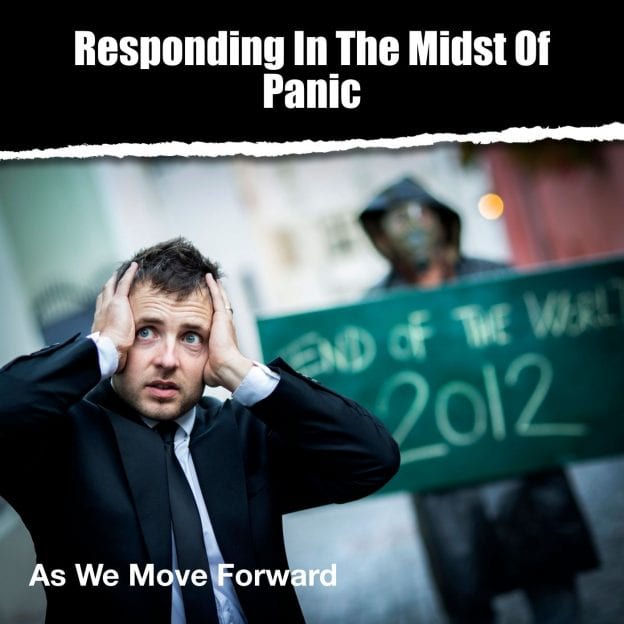
Most of us have lived through times of panic. Some major ones could include Pearl Harbor, the Kennedy assassination, 911. This is not an exhaustive list, but some characteristics of these and other times of panic could include a sense of total loss of control. It can also be referred to as a sudden overwhelming fear, with or without cause, that produces hysterical or irrational behavior, and that often spreads quickly through a group of persons or society in general. This panic can happen on a purely individual basis. Probably everyone can recall a time when they suddenly became separated from the adult they were with. It is a feeling of total panic to suddenly realize that the adult you depend on for safety and security. Thankfully, this is usually a very time-limited experience. Once we are reunited with the important adult in our life, feelings of safety and security return.
Long term panic can set in if the separation is more serious or long-lasting such as serious illness or even death. Various forms of hysterical or irrational behavior can, and often does follow losses of this type. We know that grief can be a long, complicated process. It is sometimes the case that unresolved issues surrounding this type of loss can show up in all the forms of panic involving the person experiencing the grief’s relationships. It is not unusual for people having difficulty maintaining normal healthy relationships while working through these results of panic.
Events causing panic over wider areas, like a region, a country or the world have long-lasting effects on many people over a long period of time. The Holocaust took place more than seventy years ago. Some form of response to the panic that comes from the realization that people can behave that way toward other human beings has been experienced by everyone who has visited one of the many memorials to the people who endured this suffering. Recordings have been made of interviews with survivors. The hysterical, irrational behavior of these events shapes responses to this present day.
The shootings and other acts of violent behavior being experienced in many places cause panic in all its forms. It is very common to ask after each of these events, “How do we get over this and return to normal?” There can be a sense of helplessness and hopelessness to these panic causing events. What is the right response? How do we keep the events of the situation from dominating every part of our lives? How and when does our life and world return to normal?

As we move forward, it is helpful to realize there will be events in our lives and our world that will lead to panic and all the behavior that comes with panic. We can help keep peoples’ responses reasonable when possible. At the very least we can try not to add to the hysterical behavior we sometimes see in others.
As we move forward, we can also listen and help others decide what is a reasonable response and how to find our way back to a normal existence after every incident of panic. There can be a great deal of satisfaction in helping with a rational, measured approach to situations causing panic. I encourage you to seek these responses and help others find them.
If you would like to receive new As We Move Forward posts, please subscribe to the As We Move Forward mailing list by clicking here. I release entries on a bi-weekly basis.We have a podcast containing the As We Move Forward articles read by Jae Bloom.

